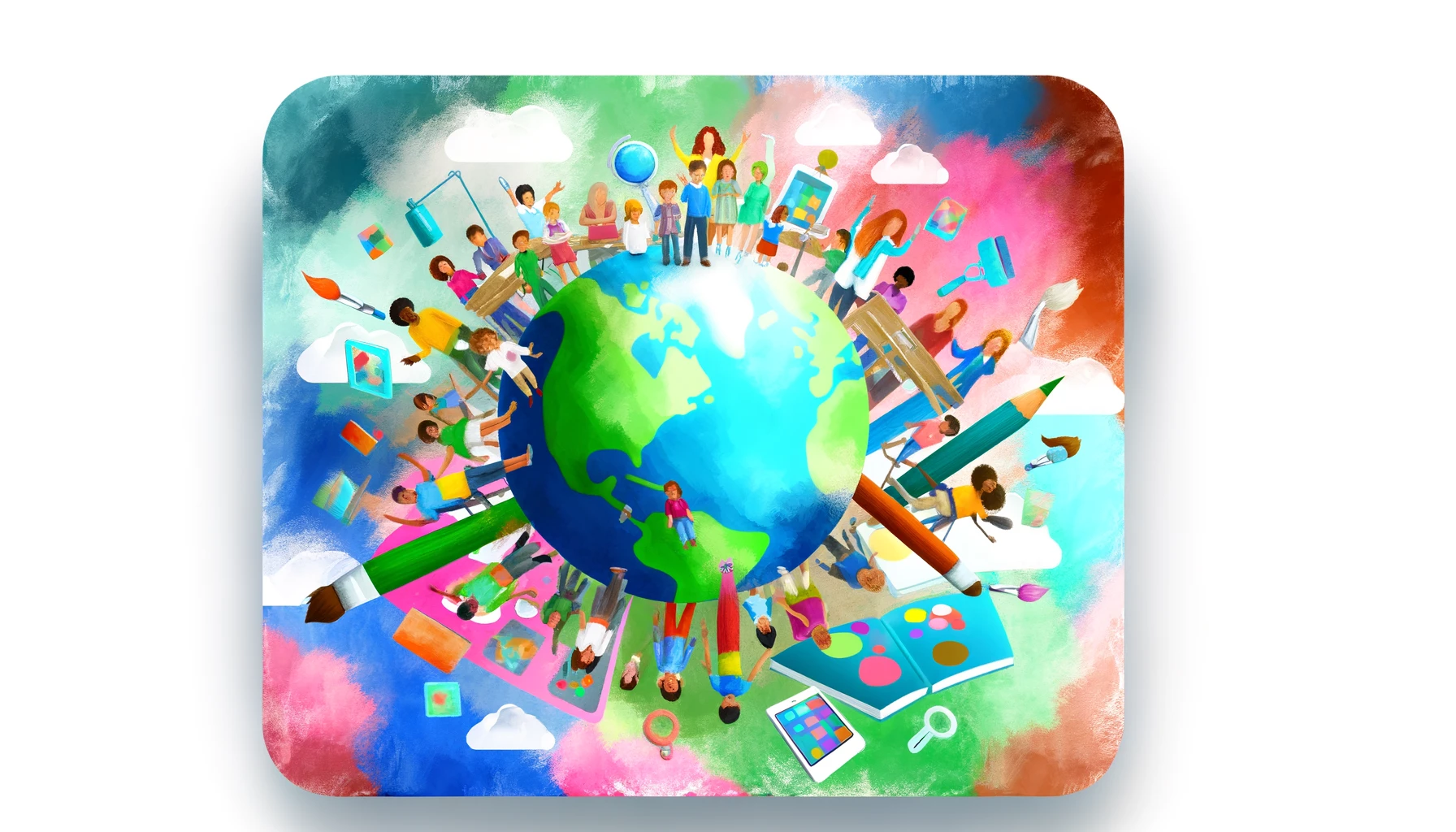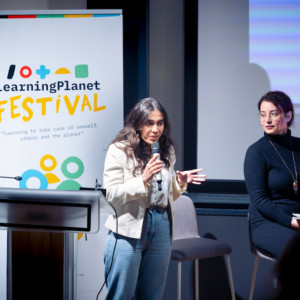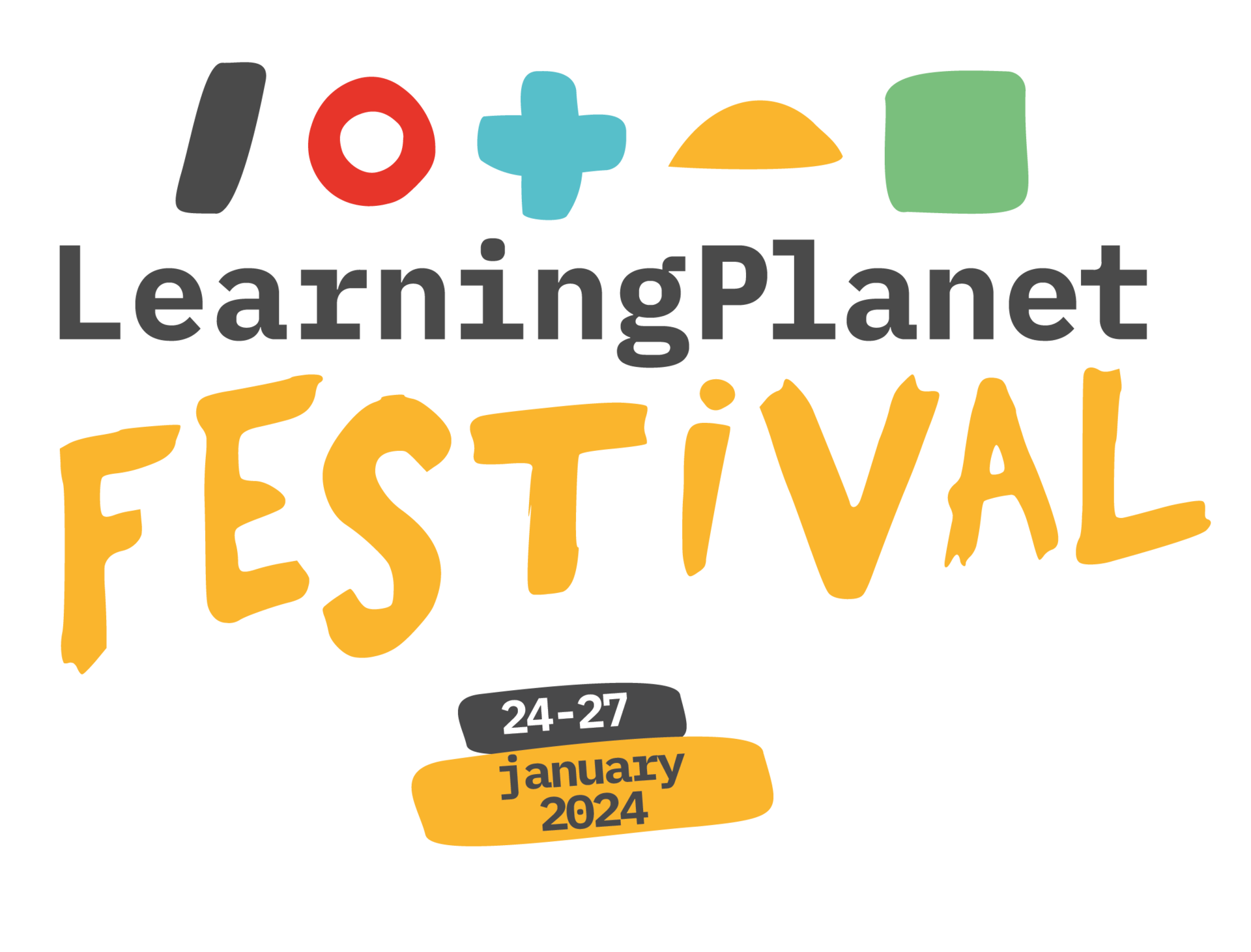By Marie Cécile Naves, French sociologist and political scientist who is the director of research at Institut de relations internationales et stratégiques (IRIS) and François Taddei, Director of the Learning Planet Institute, INSERM researcher, professor at the University of Paris, upcoming book Game Changing: Together Solving the Challenges of our Time, published by Calmann-Lévy, January 2022.
The pandemic was indeed a great equalizer in how it set everyone back to square one. Let’s take this as an opportunity to re-imagine how our societies are organized and how we co-exist, and let’s continue raising awareness everywhere about the need to reinvent ourselves. Be it for dealing with past policy choices or preparing for ones ahead, the world we are building back is going to require more sharing, dialoguing, and creating space for citizens’ conventions that inform the decision-making process. French philosopher Michel Serre reminds us that the word authority comes from the Latin augere meaning to grow, thus the debates that truly command authority are those that help us grow.
Unfortunately, as the French presidential election nears, substance is steadily trickling out of the public political debate. Instead, we’re seeing surpluses of showmanship, with candidates brandishing division, pessimism, and national nostalgia for bona fides. Questions addressing the great challenges of our time are getting eclipsed by base attempts to divert and entertain audiences. The increasingly dire needs of the disenfranchised in the wake of the pandemic and the looming ecological crisis are treated with a mere shrug. Those with authoritarian leanings continue eroding the checks and balances of government and undermining evidence-based knowledge and science. Positions of power are being fought over with increasingly hot blood. The pulse of democratic debate is dwindling, succumbing to scandal, insults, and lies.
French philosopher Sandra Laugier smartly calls democracy a “form of life.” Consider how deadly it can be to silence others, and we see the need to fight to preserve spaces for dialogue and defend traditions that encourage mutual listening between people with diverse expertise. The learning society is the blueprint for just that, i.e. building a common agenda for the common good through dialogue with individuals and the grassroots. It allows everyone to contribute to enriching the debate and establishing expertise.
In recent history, democracy has progressed through strong grassroots movements and advances in science. The home and the classroom are becoming more egalitarian spaces. Our lifestyles have been yoked with questions of pressing social and political importance. The political sphere has grown richer with an ever-increasing diversity of points of view, experience, expertise, and stories. There’s no going back now. All of us, no matter what age, deserve to be treated as contributing members to democratic society. The blueprint for civic participation in democratic institutions is in need of a make-over, as much as is democracy itself.
Going Fractal with Democracy
Fractals are a mathematical phenomenon discovered by the French-American mathematician Benoit Mandelbrot. They’re essentially structures that are identical at every magnitude. What if we could shape democracy to be fractal? It would be democracy that functions in the same way regardless of scale—local, municipal, regional, national, or international. Thankfully, democracy is already partially fractal simply by accident of the history of its development. Initially it could only extend to the city limits of Athens, but over time it continued scaling up to enfranchise ever larger swaths of the populous.
Many draw a causal relationship between the evolution of communication technology with the growth of democracy. The faster and farther information and laws were able to travel, the farther democracy could expand. Yet up until recently, political debate was always hindered by having to bring people together physically. Debates first rang out in agoras, then universities, courts, salons, academies, councils, clubs, and so on, but now with the Internet we can do away with physical limitations for the first time in history and host global debates without anyone having to leave their homes.
The creation of European citizenship was a crucial step in proving the possibilities of transnational democracy. Granting the rights laid out in the Charter of Fundamental Rights of the European Union to all European citizens gives us an idea of what global citizenship might look like. Many consider themselves global citizens, but that status comes with no rights per se, and you can’t vote in elections for a global governing body. The closest we come to global governing institutions are the United Nations, the IMF, the WTO, and others, none of which have elected bodies or citizens’ assemblies. Nonetheless, these bodies do decide on major global and economic issues, all without direct democratic input. It’s high time we re-outfitted global governance to accommodate forms of direct citizenship and direct expression of the people, that means anyone and everyone.
First, we need to see more ad hoc citizens’ assemblies. France experimented with its first such assembly in late 2019 and early 2020, the Citizens’ Convention on Climate Change. One-hundred fifty French citizens were drafted at random to represent French society in a months-long debate, the result of which was some 146 petitions on climate change proposed directly to the French executive. These petitions were then taken to the congress and ratified into French law as Resolution 2021-1104 on combating climate change and enhancing resilience to environmental degradation. According to one evaluation, some 78 of the 146 petitions were “partially” taken up while 18 were taken up in full. Hélène Landemore, professor of political science at Yale University and expert in deliberative democracy, sat in on the convention and has been vocal about its success. Not only did 150 French citizens get to make ambitious proposals directly to the government, but the convention helped raise awareness about climate issues among the population at large. Some 70% of French people reported greater awareness about climate issues following the assembly. If we could devise a global citizens’ convention on climate change, what kind of momentum could that create among the global population?
The second step we need to take is integrating more civic technology, or civic tech. These are digital platforms that allow government at every scale to survey opinion on public-policy decisions in real time. In short, they’re a catalyzer of direct democracy, but in order to be effective they must be transparent, i.e. open source. Platforms like allourideas or pol.is are very easy to use and already in use around the world. Allourideas has hosted tens of thousands of surveys and generated more than 42 million votes on surveys issued by the United Nations on sustainable development, the OECD on education, the city of Calgary, Canada on budgeting, and even New York City on the environment. Pol.is is a civic tech popularized by Audrey Tang, a Taiwanese “citizen hacker” and former leader of Taiwan’s 2014 Sunflower Movement. She’s now the country’s Digital Minister and in government she has deployed a whole series of surveying and deliberation tools that are now integral to the country’s democratic life. She explains how it works in her TED Talk, saying, “People are free to voice their ideas, and upvote and downvote each other’s ideas…. [but] everybody actually agrees with most things, with most of their neighbors on most of the issues. And that is what we call the social mandate.”
A third step is less so about technology as it is about mindset, something the Finns have devised called “humble government.” It essentially consists of abandoning top-down management in government in favor of a network model. There are four “conditions” that must be met in order for humble government to work. The first is achieving what’s called “thin consensus” on broad framework goals surrounding public policy, meaning establishing the values underpinning policy across the population. The second condition is delegating action to “key stakeholders” or highly qualified individuals who personally see to implementing reforms. Third is establishing feedback loops whereby key stakeholders can learn from each other on what has and has not been working as they roll out policy on however large or small a scale. The fourth and last condition is allowing the broad framework goals to undergo constant revision in light of new information and changing times.
Making the Enlightenment More Inclusive
While technology can’t fix the problem of suppressing voices in democratic debate, it can, when wielded properly, help to fight against it. The established system of representative democracy, i.e. allowing an elected official a few years in office to implement an agenda, will never change, but a lot of issues can and should be subject to consultation and surveying at a more regular clip. The New Enlightenment of the 21st century has to renew the great legacy of the old Enlightenment by making it more egalitarian and taking into consideration two things that weren’t around in the 18th century: the breakneck speed of the industrialized world (and in turn that of the decay of the planet) as well as globalization and the interconnectedness of all human experience. In short, the New Enlightenment must go from a mindset of having to a mindset of being.
There is no shortage of great ideas among the population just waiting to be heard. To connect every potential great idea with the right organizations and groups to turn ideas into game-changing initiatives, we have to create more “middleground” spaces where small-scale and large-scale actors can meet; more “massive open online debates” (MOODs) where ideas can become actions and where people from diverse backgrounds can work together to build a healthier future. On UNESCO’s International Day of Education, the “What If Learning Was a Celebration?” festival seeks to do just this. More and more voters are abstaining from elections in recent years, but that doesn’t mean potential voters don’t care about democracy. They’re simply going about expressing their democratic voices differently, i.e. by joining grassroots movements and effecting real change. For anyone looking to get voted into political office, you can no longer afford to ignore the new ways of doing things.
This article was originally published by The Conversation: read it in French.



